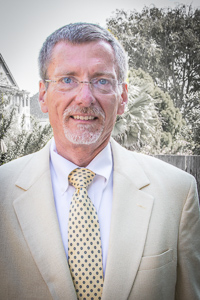My family has been Unitarian since a Sunday afternoon in the mid-1930’s when my then-10-year-old aunt came home from the Middleborough, Massachusetts Congregational church and started telling her mother about what they’d learned that day about Jesus Christ and his baby brother Bobby. My grandmother was not too much for Bible stories but tolerated the mention of Jesus. However, she said she was not going to let her children believe in an entire mythical family, complete with Baby Brother Bobby. So she pulled out of the Congregational Church and took my mother and aunt with her across the street to the Unitarians who could be relied on to not mention Jesus or any mythological siblings.
This act by my grandmother resulted in me being born a Unitarian in the 1950’s, and my earliest Sunday memories are going with my mother to First Parish in Cambridge, Massachusetts. Mother had me attend the adult services with her because, she said, the minister, Rev. Ralph Norman Helverson, was excellent and made her think. She didn’t expect 6-year-old me to understand the sermons, but she wanted me to know that adults like her went to church by choice, were energized by what they heard, and that church-going was something that intelligent, committed people did for own benefit.
Of course, I most remember being the young star at adult coffee hours downstairs after service. I had been so good and acted so attentive throughout the hour, my mother’s friends said. It was great positive reinforcement.
When we moved out of Massachusetts, we continued to go to Unitarian churches.
The Unitarian message was perfect as I reached high school age in Los Angeles. Being challenged to consider tough issues, exploring personal values, and not signing on to the dogmas of the past are at the core of both teenage rebellion and of Unitarianism. During the time of the Vietnam war my generation blatantly defied the Eisenhower-era ethos and it was important to me that genuine adults of my Unitarian tribe were questioning along with me the war, mindless patriotism, and jingo Christianity.
Later, in my 20’s, I was very, very reluctantly admitting to myself that I was, ahh,… not attracted to women. As a Unitarian, I was very fortunate to have only cultural guilt and not religious guilt to deal with. In fact, I had heard from Unitarian ministers and from the church statements of conscience that someone’s sexual orientation was irrelevant to their moral goodness. I did not personally really believe that equality for a while, but my church and its teachings were there for me when I was ready to accept myself.
It wasn’t until I joined this congregation that I became a Unitarian Universalist. And, then it was only when we changed our official name in the 1980’s from the First Unitarian Society of San Francisco to the First Unitarian Universalist Society of San Francisco. I was in my 30’s when I began to learn and appreciate the Universalist heritage and influence.
I still love the feeling of sitting in the church pews, listening to a thought- and emotion-producing sermon. Unitarianism has helped me form my ethics and beliefs. I was crazy proud to be married in front of friends and family here in 2008. As Geoffrey and I marched down the aisle, Reiko played on the formal church organ a Romanovsky and Phillip song, Give Me a Homosexual. The risqué lyrics were not sung, but it was still a grand entrance.
Unitarianism has helped me with the difficult issues of life and provided a nurturing community ever since I can remember. I am very blessed to be life-long Unitarian.
Click to hear the reflection as delivered at the First Unitarian Universalist Society of San Francisco on August 30, 2015.


Leave A Comment